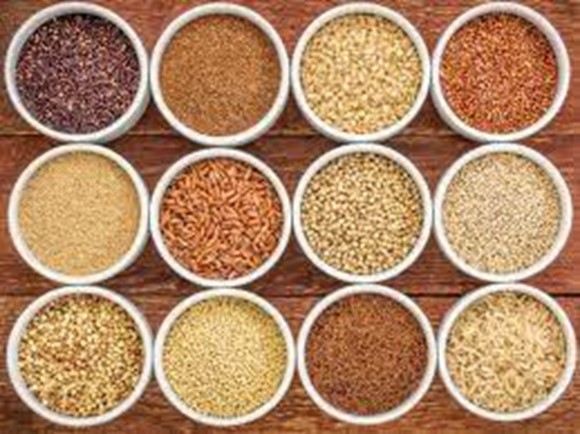A nurse is teaching a class about dietary guidelines to promote cardiovascular health. Which of the following recommendations should the nurse include in the teaching?
Decrease intake of omega-3 fatty acids.
Increase intake of whole grains.
Decrease intake of potassium.
Increase intake of refined carbohydrates.
The Correct Answer is B
Choice A rationale:
Decreasing intake of omega-3 fatty acids would not be recommended for promoting cardiovascular health. Omega-3 fatty acids are essential fats that have been shown to have various heart-protective effects, such as reducing inflammation, lowering triglyceride levels, and improving overall cardiovascular health.
Choice B rationale:
Increasing the intake of whole grains is a sound recommendation for promoting cardiovascular health. Whole grains are rich in dietary fiber, vitamins, and minerals. They can help lower cholesterol levels, improve blood sugar control, and contribute to a healthy cardiovascular system.

Choice C rationale:
Decreasing the intake of potassium is not advisable for cardiovascular health. Potassium is a mineral that plays a crucial role in maintaining proper heart and muscle function. Adequate potassium intake can help regulate blood pressure and reduce the risk of stroke.
Choice D rationale:
Increasing the intake of refined carbohydrates is not a suitable recommendation for cardiovascular health. Refined carbohydrates, such as sugary snacks and white bread, can lead to spikes in blood sugar levels, weight gain, and an increased risk of heart disease.
Nursing Test Bank
Naxlex Comprehensive Predictor Exams
Related Questions
Correct Answer is C
Explanation
Choice A rationale:
Crohn's disease is not commonly associated with obesity. Crohn's disease is a chronic inflammatory bowel disease that can lead to weight loss due to malabsorption and other gastrointestinal symptoms.
Choice B rationale:
Peptic ulcer disease is not directly linked to obesity. Peptic ulcers are primarily caused by Helicobacter pylori infection or the use of nonsteroidal anti-inflammatory drugs (NSAIDs).
Choice C rationale:
Gastroesophageal reflux disease (GERD) is commonly associated with obesity. Excess weight, especially around the abdominal area, can contribute to increased pressure on the stomach and lower esophageal sphincter, leading to the backflow of stomach acid into the esophagus and causing symptoms of GERD such as heartburn and regurgitation.
Choice D rationale:
Celiac disease is not typically associated with obesity. Celiac disease is an autoimmune disorder triggered by the ingestion of gluten, a protein found in wheat, barley, and rye. Individuals with celiac disease often experience weight loss and malabsorption due to intestinal damage.
Correct Answer is C
Explanation
Choice A rationale:
Maintaining a low-protein diet is not the appropriate instruction for a client taking a monoamine oxidase inhibitor (MAOI). While dietary restrictions are associated with MAOIs, it's primarily focused on avoiding foods rich in tyramine, which is not limited to just protein-containing foods.
Choice B rationale:
Not eating grapefruit while taking medication is generally applicable advice, but it is not specific to MAOIs. Grapefruit can interfere with the metabolism of certain medications by inhibiting specific enzymes. However, it's not a concern solely related to MAOIs.
Choice C rationale:
Avoiding aged cheeses while taking this medication is the correct instruction. Aged cheeses contain tyramine, which can lead to a hypertensive crisis when consumed with MAOIs. Tyramine interacts with MAOIs to increase blood pressure, potentially causing a serious reaction.
Choice D rationale:
Reducing intake of high-calorie foods is not a primary concern when taking MAOIs. The main dietary focus is on avoiding tyramine-rich foods to prevent dangerous interactions. High-calorie foods are not directly contraindicated with MAOIs.
Whether you are a student looking to ace your exams or a practicing nurse seeking to enhance your expertise , our nursing education contents will empower you with the confidence and competence to make a difference in the lives of patients and become a respected leader in the healthcare field.
Visit Naxlex, invest in your future and unlock endless possibilities with our unparalleled nursing education contents today
Report Wrong Answer on the Current Question
Do you disagree with the answer? If yes, what is your expected answer? Explain.
Kindly be descriptive with the issue you are facing.
